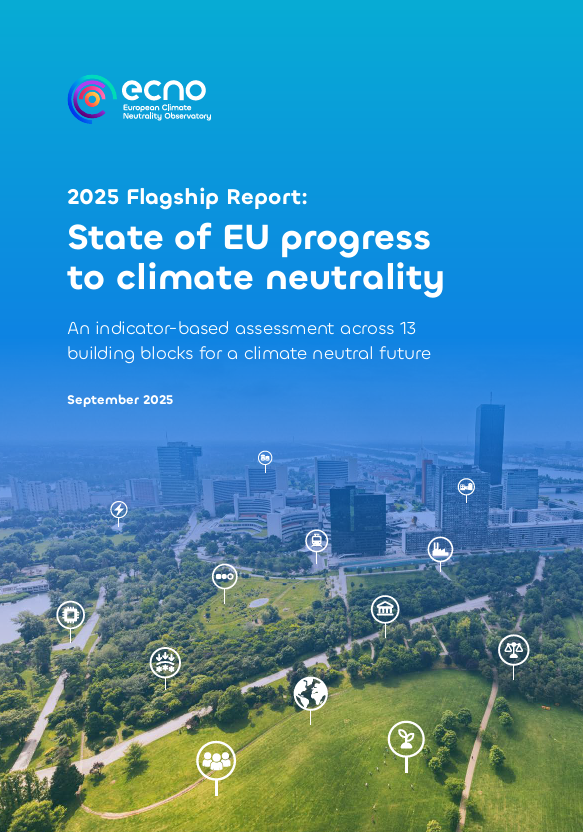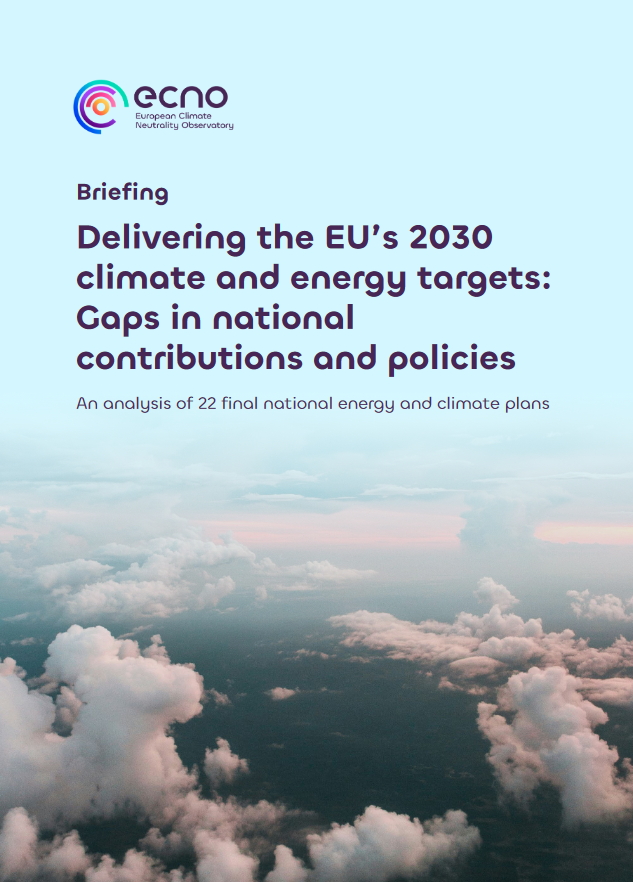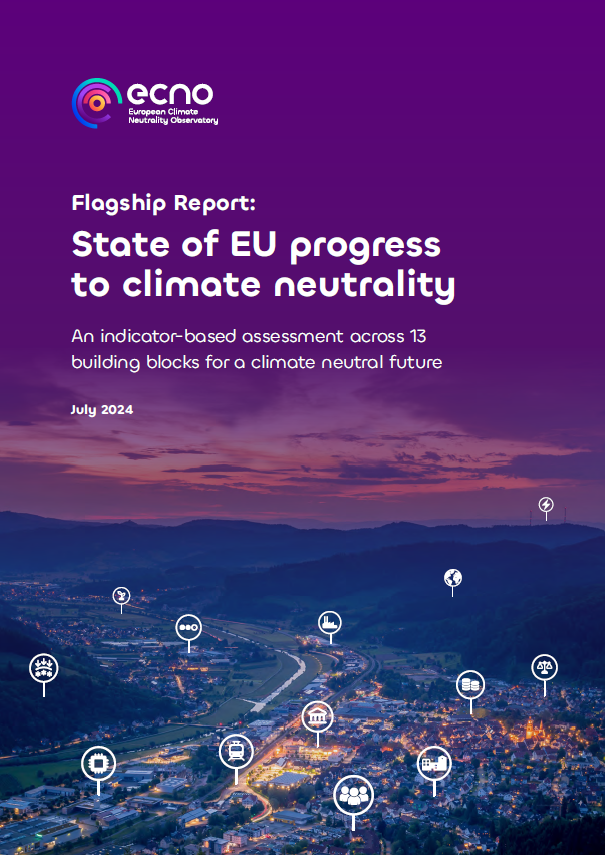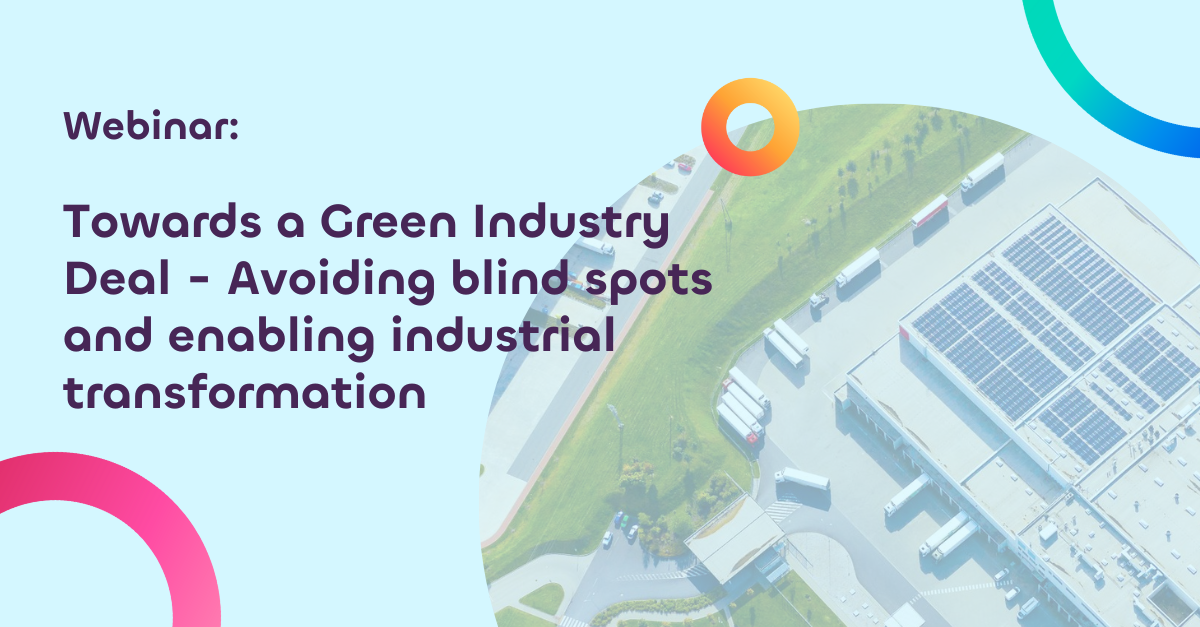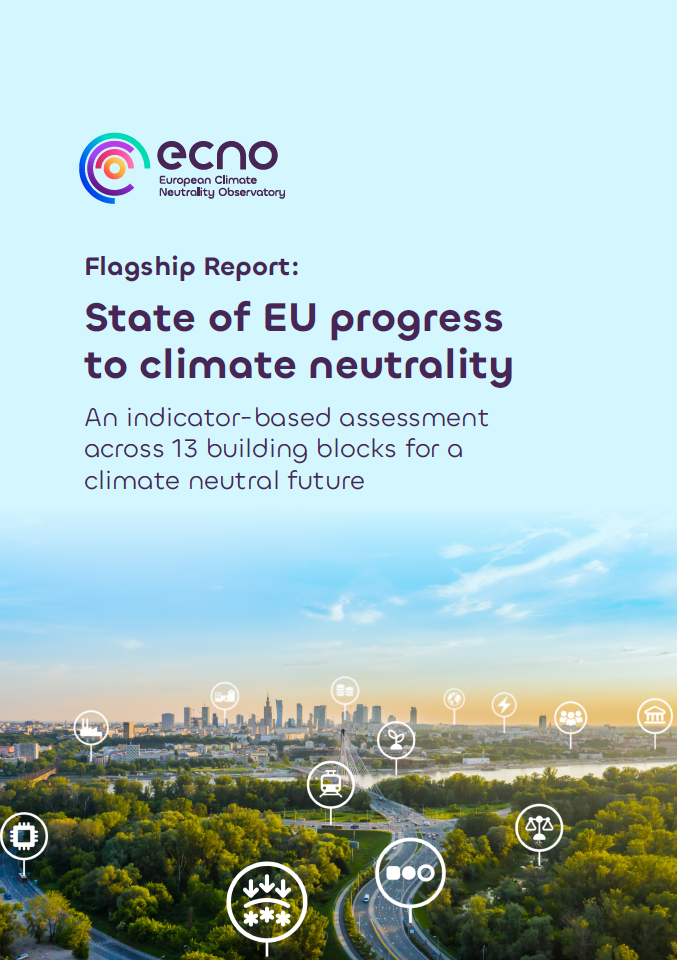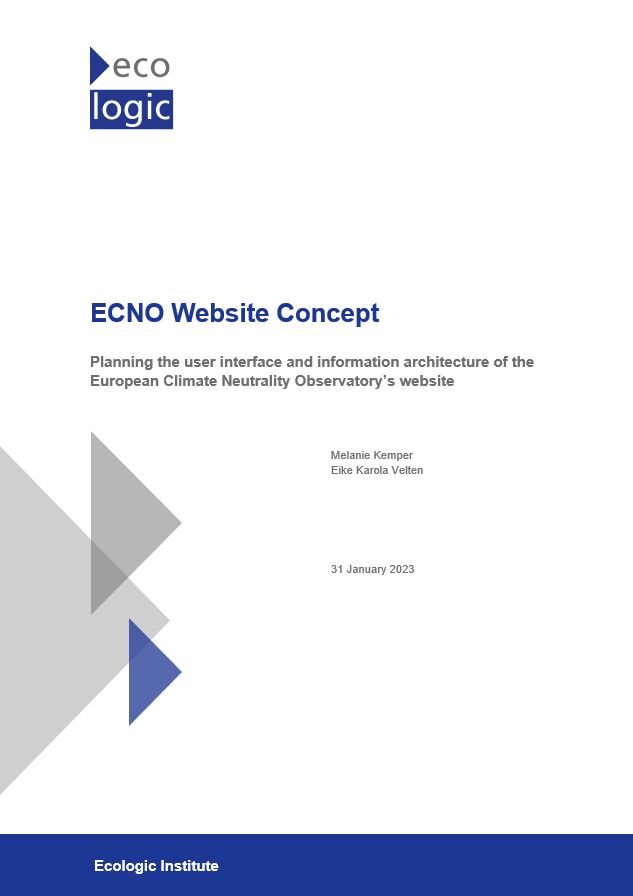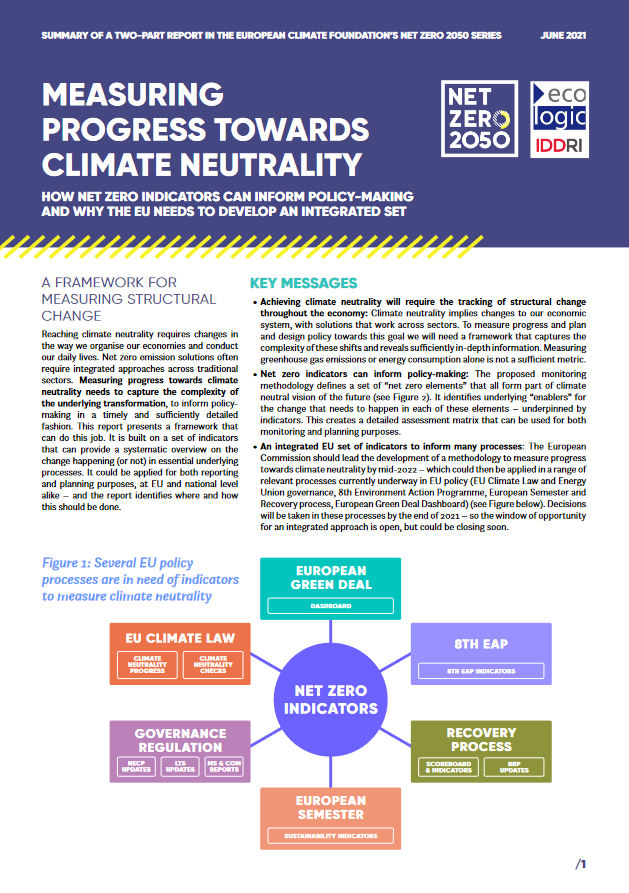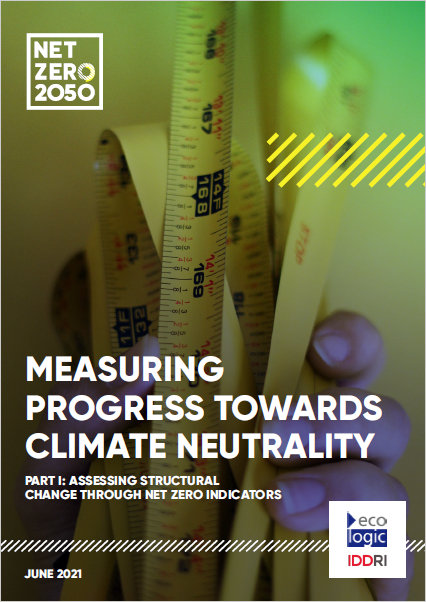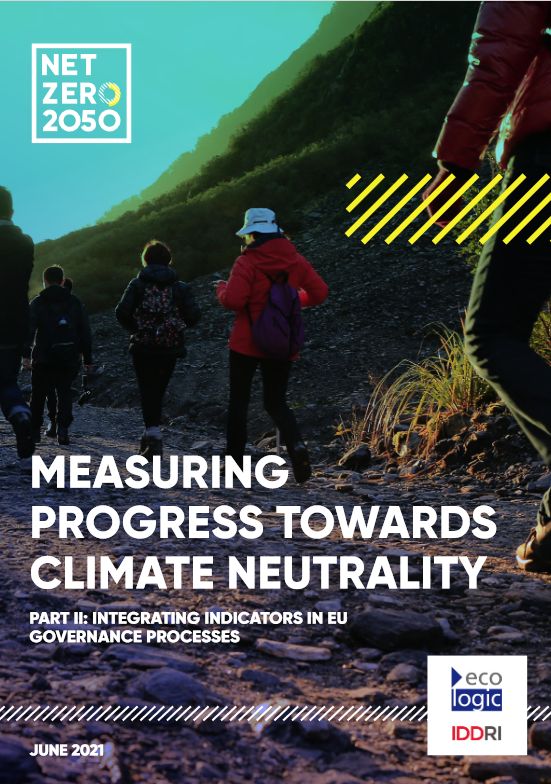State of EU Progress to Climate Neutrality
2025 Flagship Report
- Publication
- Citation
Velten, Eike Karola et al. 2025: 2025 Flagship Report: State of EU progress to climate neutrality. An indicator-based assessment across 13 building blocks for a climate neutral future. European Climate Neutrality Observatory (ECNO).
The EU is making promising progress on the road to climate neutrality but needs to keep up the pace to achieve the goal. This is the result of the third progress report by the European Climate Neutrality Observatory (ECNO), which has analysed developments in over 150 indicators across all areas of society. The weak points identified provide crucial information for the work of the EU institutions.
The transition to climate neutrality is unfolding across all parts of the EU economy. ECNO’s 2025 assessment shows positive momentum in several policy areas, most notably in the EU’s cleantech industrial base and innovation ecosystem, which is now rated on track. Yet, despite encouraging progress, financing gaps, governance shortcomings, and persistent policy blind spots continue to hold back the pace of the transition.
ECNO's methodology provides a detailed picture of the transition, combining 147 indicators across 13 'building blocks' of a climate neutral society with a systematic analysis of EU policy developments. This enables ECNO to track not only sectoral progress but also the enabling conditions that are necessary for a clean, fair, and competitive transition.
Promising momentum, but major hurdles remain
In this year’s assessment, 12 of 13 building blocks support the EU’s clean transition. The outlook for Clean Technologies has improved significantly, with manufacturing capacities for solar, wind, batteries, heat pumps, and electrolysers expanding. Solar power reached a new milestone in 2025: for the first time, it became the largest single source of electricity in the EU. Carbon Dioxide Removal also improved, moving from "wrong direction" to "far too slow." At the same time, jobs in renewable and environment-related sectors are on the rise, including in traditional industrial regions.
However, bottlenecks remain. Financing gaps – amounting to EUR 344 billion in 2023 – are slowing down building renovations, EV uptake, heat pump deployment, and wind expansion. Governance has been downgraded due to weak frameworks for citizen participation and uneven implementation at Member State level. External vulnerabilities also weigh heavily: fossil fuel imports reached EUR 400 billion in 2024, and supply chain dependencies, especially on China, expose the EU to geopolitical risks.
Agricultural policy continues to lag behind consumer trends. Although beef consumption has declined and food waste remains alarmingly high, EU subsidies still overwhelmingly support emissions-intensive farming. Social disparities are visible as well: 11% of EU citizens were considered energy-poor in 2023, while national climate assemblies have only been one-off exercises in a handful of countries.
Overall, the EU is advancing towards climate neutrality, but the current pace is still insufficient to meet the 2050 target.
Key policy actions in the next EU cycle can accelerate the transition to a competitive and just climate neutral Europe, such as:
- Creating a supportive investment framework for clean goods, technologies, and decarbonisation efforts.
- Removing bottlenecks to the transition, including permitting, infrastructure, and skills shortages.
- Increasing demand for clean goods and technologies and fostering lead markets.
- Advancing the implementation of EU legislation at Member State level.
- Strengthening climate considerations in EU foreign policy and international diplomacy.
- Building resilience through data-informed climate adaptation.
- Reorienting the agrifood system to benefit both farmers and the planet.
- Enhancing international climate finance to drive global action.
Read more in the full report or in the executive summary. More detailed insights into each building block, along with interactive figures for many indicators, are available on the ECNO website.
